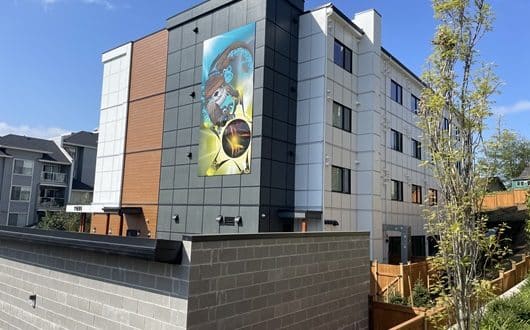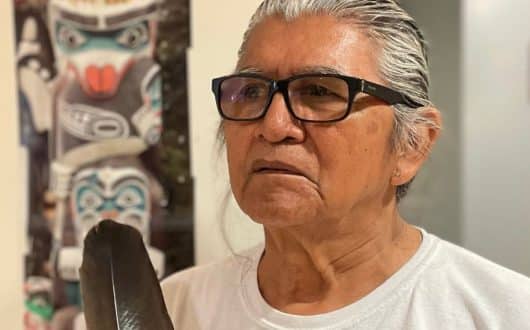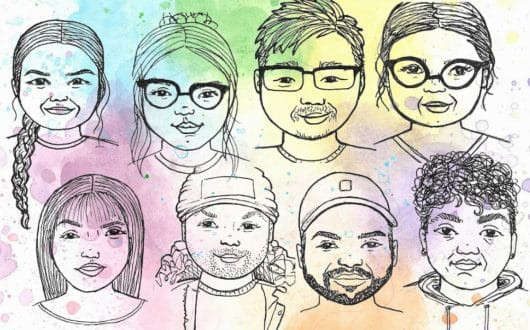Alex’s story – Building a sustainable lifestyle
When Alex first enrolled at college in the Lower Mainland, he struggled with the same challenges many students face: stress, financial security and mental health awareness. After becoming homeless, he was soon hospitalized where he was diagnosed with schizophrenia.
Alex moved into subsidized housing, and worked with teams of professionals to begin rebuilding the independence he once had. “There’s a whole range of things a person has to do in order to become more independent in their life,” says Alex.
“For a person to return to a good quality of mental health is huge.”
People make the difference
For Alex, independence meant two things. He wanted to finish his college courses so he could progress to university. And he wanted to give back to the healthcare community, recognizing the tremendous support he’d encountered on his journey to recovery.
After volunteering with a number of organizations, Alex settled on Coast Mental Health and began training as a peer support worker. For Alex, it was the people that drew him to want to work with Coast on a long-term basis. “The people at Coast have an ability to develop a rapport with clients, and to serve and provide supportive services in a way that is personable and friendly,” he says. “And I think that’s part of what makes the organization so successful.”
The ripple effect
The peer support program offers people with lived experience the opportunity to support a peer as they start to engage in their own recovery journey. Developed and run entirely thanks to the generosity of supporters, the Young Adult Peer Support Training program is highly regarded across the province as the gold standard. When Alex began his training, he was eager to put his new skills and first-hand experiences into practice. “You’re really hoping that someday you’ll be able to help other young people avoid the pitfalls that you went through,” says Alex. “So you’re really eager to study and get into the field.”
“The peer support training program is all about opening doors. There’s a ripple effect of training one person, and then the impact that person then has on the numbers of people they connect with and serve. And then the larger community and changing minds and perspectives on what really is the importance of lived experience and recovery-based programs in mental health. Without donors, we wouldn’t have been able to do any of it.” – Tracy Rapanos, Program Director
During Alex’s five-year success as a peer support worker, he not only made a positive impact on the lives of many clients, but the program also allowed Alex to build structure and stability in his own life. “It was kind of like a part-time job,” he says.
Building a sustainable lifestyle
Alex ran a number of art programs, and provided opportunities for clients to enjoy the outdoors. “Getting out into nature is so important,” says Alex. “And that’s something — as city goers living in an urban environment — we tend to forget.”
During his time as a peer support worker, Alex completed his college courses and an undergraduate program in Sustainability at Simon Fraser University.
“One of the things I learned after completing my degree was that sustainability is largely about us in our own lives,” he says. “And so working [as a peer support worker] was an opportunity for me to project those values of sustainability upon the people that I was working with.”
For Alex, the results were visible. “Just seeing the smiles on people’s faces when they spend some time doing art, or in nature,” he says. “And then to know down the line that that person has completed their education, or ended up getting a stable line of employment. That’s very rewarding — to see that.”
Alex is now completing his second undergraduate program in Classical Literature at the University of British Columbia. He feels positive about what lies ahead. “I have seen so much optimism from so many people that I just feel confident about the direction that everything is going for me, and for everyone in the city.”


